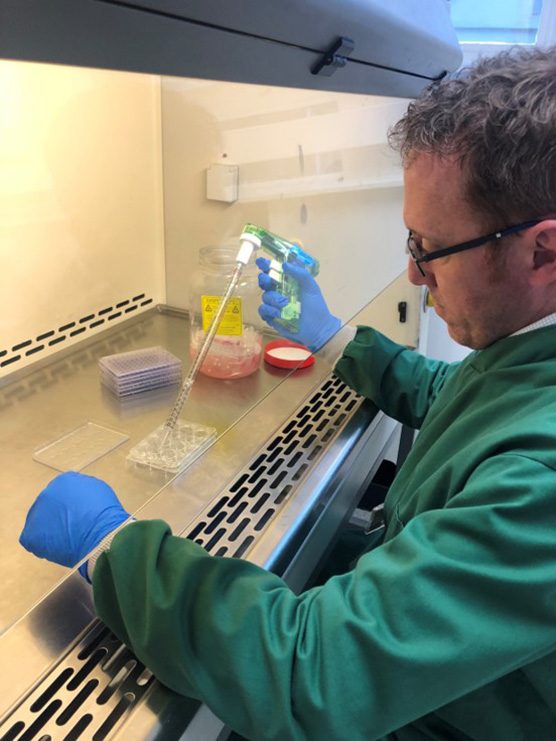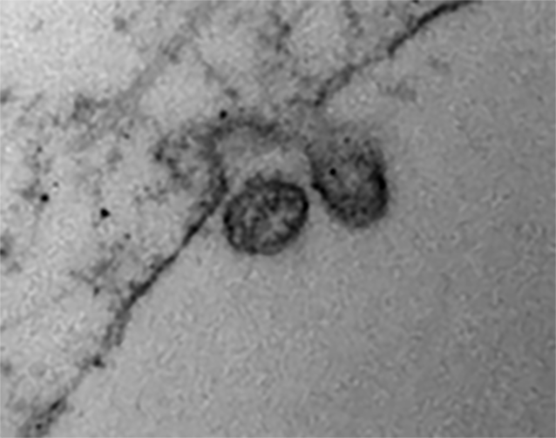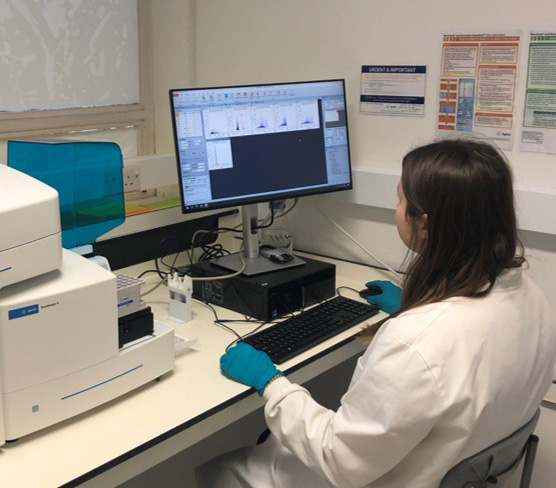Containment Level 3 laboratories
The University of Bristol Veterinary School (BVS) boasts a cutting-edge research facility dedicated to advancing our understanding and combating critical infectious diseases. At the forefront of this facility are Containment Level 3 (CL3) laboratories, strategically designed and equipped to conduct research on high-impact viruses such as HIV-1 and SARS-CoV-2. The significance of this facility extends beyond its current focus, as it is poised to contribute to groundbreaking Tuberculosis (TB) research in the near future. These CL3 laboratories operate in tandem with Containment Level 2 (CL2) labs, seamlessly connected to foster collaborative interdisciplinary research. The CL2 labs are equipped with state-of-the-art tissue culture facilities, facilitating the exploration of cell-based responses to various pathogens. Furthermore, researchers benefit from access to cutting-edge technology, including sophisticated fluorescent microscopes and Multiparameter flow cytometry equipment within these interconnected laboratories. This integrated approach positions the BVS as a hub for transformative research, playing a pivotal role in the global efforts to combat endemic and emerging infectious diseases, now and in the future.
HIV-1 Research
Under the leadership of principal investigators Dr. Jamie Mann and Dr. Katja Klein, the research conducted within the CL3 laboratories at the BVS is at the forefront of HIV-1 cure investigations. This pioneering research encompasses a multifaceted approach, delving into reservoir characterization, the design and evaluation of cure therapies employing innovative "shock and kill" strategies. The researcher's complimentary expertise extend beyond curative measures, encompassing preventative vaccine studies crucial for the global fight against HIV-1 acquisition. Additionally, the CL3 lab serves as a platform for transmission and replication fitness studies, providing essential insights into the dynamics of the virus.
SARS-CoV-2 Research
Throughout the COVID-19 pandemic, the BVS emerged as a pivotal partner in the global response, spearheading essential research into the survival dynamics of SARS-CoV-2 in respirable droplets. This extensive research was a product of a large-scale collaboration between distinguished researchers at BVS, including Tristan Cogan and Jamie Mann, alongside experts from Cellular and Molecular Medicine (Andrew Davidson, Darryl Hill), Bristol Medical School (Adam Finn), and under the leadership of researchers within the School of Chemistry, exemplified by Jonathan Reid and Allen Haddrell. This interdisciplinary synergy has yielded critical insights into the intricate interplay among relative humidity, temperature, pH, evaporation, and time of flight in determining the airborne stability of the virus. The BVS’s commitment to collaborative research has proven instrumental in advancing our comprehension of SARS-CoV-2 transmission, reaffirming its status as a global hub for impactful research in the face of public health challenges.
Tuberculosis
BVS is leading in the development and deployment of point of care diagnostic tests for field use in LMICs to aid wildlife conservation and rehabilitation and release schemes.



Contact
If you are interested in using our containment level 3 facilities, please direct your queries towards Dr Tristan Cogan (tristan.cogan@bristol.ac.uk)